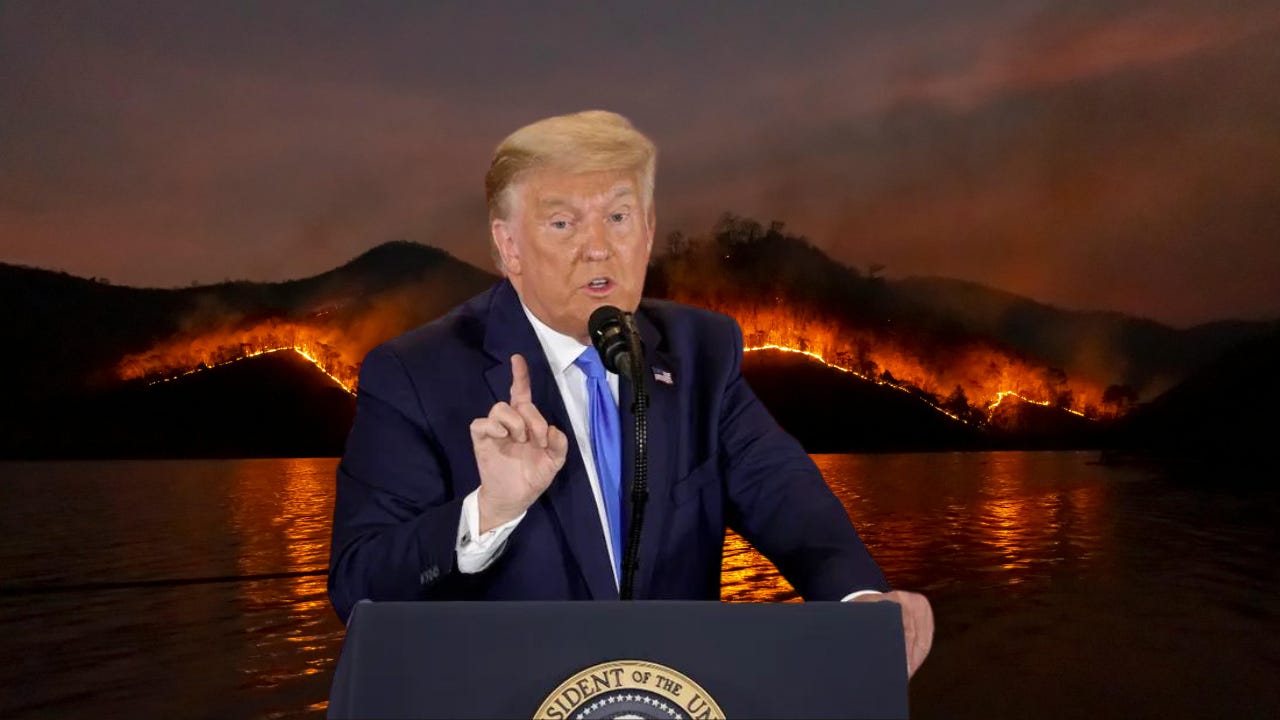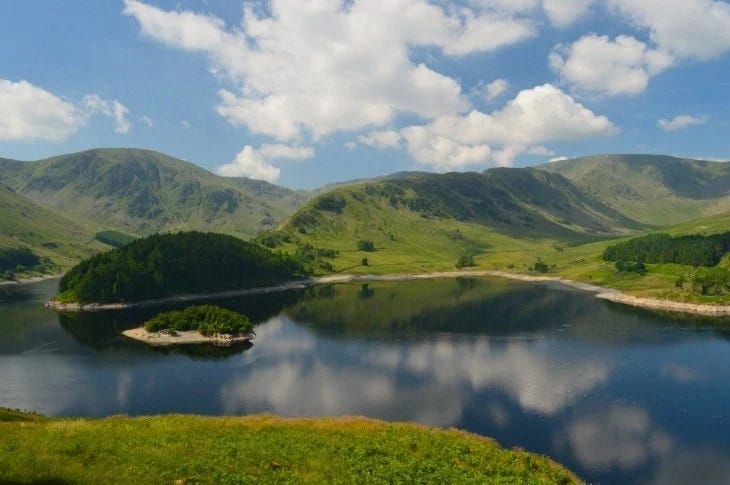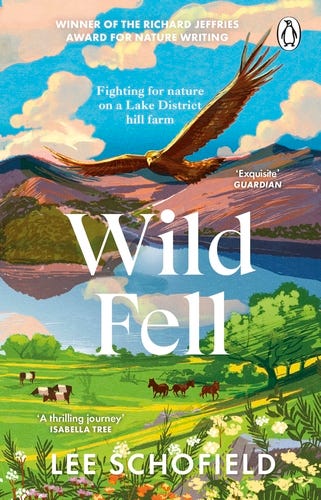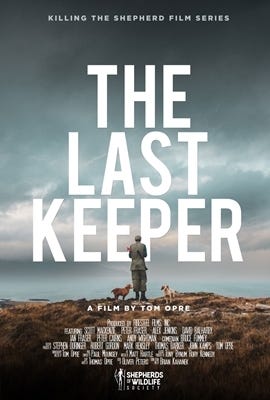📰 Top Stories
⛳ Golf Not Green Issues Fires Up US Debate
🇺🇸 Red flags as Thursday’s presidential clash fails to energise sustainability priorities.
The first Biden-Trump matchup of the 2024 election cycle has been widely received as a new low for American leadership, whoever you support. A discussion of the candidates’ golf handicaps brought out more passion than the most pressing concerns of our time. Biden’s contributions on sustainability issues, like electric vehicles and green jobs, were packed with stats but undermined by his inability to keep numbers straight or draw out a compelling narrative. Trump claimed the ‘best water’ and ‘best air’ while in office, so let’s check the record… | More
👏 New Global Sustainability Reporting Standards
🌏 The ISSB announce a global framework for corporations reporting progress.
As the saying goes, ‘what gets measured gets done’. How corporations benchmark and share sustainability plans and data on implementation is vital. Last week, an initiative formed at COP26, the International Sustainability Standards Board (ISSB), announced moves to standardise global corporate sustainability reporting. The focus is on aspects like how corporations disclose climate transition plans, present key data and measure emissions across value chains. Get a full briefing… | More
☕ Progress on Coffee’s Sustainable Transition
🇨🇭 An event in Switzerland spotlights advances made and the challenges remaining.
Last week’s ‘Geneva Dialogues’, hosted by the International Trade Centre, discussed the sustainable transformation of the coffee industry. Attendees including leaders, policymakers and experts brainstormed strategies to enhance sustainable production. Successful efforts and innovative solutions were showcased to help inform how the sector can deliver greater equity and key green goals. Read on for more about the event, and to find out how sustainable your morning brew is… | More
📖 Book release of the week: ‘Wild Fell’
Investigating ecological restoration in Britain’s Lake District…
Last Monday, I was lucky enough to have a poster presented at the British Ecological Society. Speaking at the event was author Lee Schofield, who’s recent book Wild Fell I enjoyed - so although it was published last year I hope you’ll forgive me for picking it as my book of the week!
In 2016 the last golden eagle in England disappeared from Haweswater, a secluded corner of the Lake District's eastern fells. Schofield, at the time an ecologist and site manager there, was part of the team who announced its death. The team used this sad milestone to vitalise years of work restoring nature in the stunning Mardale valley.
Wild Fell is an engaging journey through these attempts to ecologically heal one of the UK's most loved rural areas - giving us a backstage pass to the challenges and triumphs of rewilding.
“We’ll wake tomorrow to a country less wild than before, nature one step further from us, one step closer to simply being a shadow of itself.”
~ Alan Tilmouth, Birder who broke the news back in 2016
Similar rewilding initiatives are ongoing around the world, seeking to restore vanishing species and degraded ecosystems, so it’s important there are books out there like Wild Fell, sharing insights and inspiration in ways academic papers can’t.
This work is part of a broader literary moment happening in the UK’s Lake District, a region previously made famous by writers like Wordsworth, Coleridge and Wainwright.
Today authors like Schofield, the farmer James Reebanks and nature writer Karen Lloyd, are combining romantic appreciations of this unique place with realism as to its environmental health. They tackle thorny topics, including traditional farming’s impacts and what locals and visitors alike expect from the Lakes’ aesthetic.
“Like the rivers it has re-bent, the Haweswater project is re-wiggling farming into a more sustainable alignment with nature. And by similarly refusing to operate in siloed straight lines, Schofield's own journey towards greater collaboration may have lessons to teach both [these] rural tribes.”
~ India Bourke, New Statesman Magazine Review
Anyone who enjoys perceptive nature writing, stories of overcoming the odds and meditations on our place in rural landscapes will find Wild Fell a rewarding read.
More about the book here.
📽️ Screen release of the week: ‘The Last Keeper’
Documenting Scotland’s impassioned battles over land use…
We’re staying in the UK and heading just over the border for last week’s film release, The Last Keeper. In many ways, the documentary covers similar terrain to Wild Fell.
Not literal terrain of course - but issues of managing land in the interests of ‘nature’ vs. people. This is ultimately a false dichotomy, as holistic conservation programs like ‘Wild Fell’ demonstrate, but one that’s deeply rooted in Scottish society.
American Conservationist Filmmaker Thomas Opre’s project explores the tensions in local communities between rewilders, NGOs, walkers, hunters, gamekeepers, landowners and their families. It also explores different perspectives on ‘green’ regulation and international carbon markets in Scotland.
The documentary’s trailer begins with a quote that:
“large areas of land have been given over to the management of a single species for the very privileged few”.
But as with Opre’s last film Killing The Shepherd, which raised unintended consequences of banning trophy hunting for South African tribes and wildlife, there’s a narrative angle to his work which pits ‘indigenous’ people against nature-focused conservationists and those internationalising green markets and regulation.
Here’s how Opre himself describes the project:
“Scotland's history is romanticized…centuries of bloody feuds, warfare and forced displacement. In the glens today there is unfinished business, fueled by modern agendas; well-meaning rewilders, urban land reformers and distant corporates plundering carbon markets. Reminiscent of the Highland Clearances of the past, indigenous communities are increasingly an inconvenience for the urban political class and their vision of progress. The targets are farmers, gamekeepers, ghillies, and deer stalkers whose families have been working the land, in some cases, for centuries. The land provides jobs and wages which they use to buy food and pay bills; keep families living in small communities filling local schools with children; and providing active wildlife and habitat management. It's a war for control, a class warfare where traditional wildlife conservation may become as much a victim as the fragile rural communities themselves. The Highland Clearance was a thing of the past but is cultural genocide a part of the future? The answer is echoing through the Glen.”
I raise this not to disparage the documentary itself but only to note that, as a result, it’s not a truly balanced piece.
I suspect Opre subscribes to the filmmaking rule attributed to Syd Field, Aaron Sorkin and others that ‘all drama is conflict’. The Montanan director may also have a plains spirit which rejects the meddling hand of outsiders in favour of those who live ‘close to the land’.
But what art or journalism can ever be completely neutral?
To be honest, I wouldn’t care if I discovered that Opre’s Shepherds Of Wildlife charity (which funded the film) receives donations from vested interests.
The act of putting a diverse set of voices on the screen, in their landscape, dissecting these topics is hugely worthwhile. We should never shy away from the complex moral, economic and environmental trade-offs involved in creating a more sustainable world.
Watch the trailer here.
💭 Thoughts for the week ahead:
This week’s newsletter got me thinking about the politics of green issues and creating a more sustainable world.
I come with a controversial take.
The aftershocks of Thursday’s presidential debate, the current polls in the US General Election, as well the situation in France with Marine Le Pen’s party all tell us something.
As a broad church of sensible people who want to see a more sustainable world - we cannot rely on responsible centrist, center-right, or center-left leadership being in place throughout these crucial decades.
If sustainability as a global priority only has a home in certain sections of political life, the global response will be too slow or fail outright.
So, we need to consider two important realities:
Sustainability goals are as susceptible to extremism as any others.
To achieve global change, we need political movements of all stripes to place a more sustainable world at the centre of their projects.
Let’s look quickly behind point number one.
Most of us probably associate the ‘green’ Organic food movement with certain values and certain consumers. Perhaps trips to supermarkets like Erwehon in Los Angeles, Billa in Europe or Waitrose in the UK. You may even see yourself in that description!
But in her unsettling book Organic Resistance: The Struggle over Industrial Farming in Postwar France, the historian Venus Bivar explains how Organics’ roots are more complicated:
The first French men to organise themselves in opposition to industrial farming, and they were indeed all men, included a neo-fascist, a handful of eugenicists, and several anti-Semites. The will to produce healthy food that was free of chemical residues stemmed from the desire to return the French race to its natural position of superiority. Pure food would build pure French bodies.
University of North Carolina Press Blog (2018)
This unpleasant reality was mirrored in the UK, as Michelle Niemann explores in her excellent essay in Edge Effects.
Yikes!
Maybe the political variety to Organics’ history doesn’t surprise to you. You may even be aware of what’s been written about the potential that remains for eco-fascism or eco-communism to stem from the ‘green’ movement.
But to come to point number two, if we want to reach a world where resource use and economies are more circular and resilient then this more complicated picture shouldn’t scare us.
Instead, it frees us to cut through some of the cosy stereotypes surrounding environmentalism, green issues and sustainability that keep it politically siloed today.
It frees us not to become extremists, or to enable extremism, but to encourage and allow more people of more political beliefs to respond to and contribute towards sustainability as a goal.
Do we care enough about sustainability to allow people we don’t agree with to care about it too?
How we answer that question might just be the one thing that determines whether we ever achieve it.
Thanks for reading Green Box ! Subscribe for free to receive new posts and support my work.









Every day it feels like a struggle to gain the ear of anyone who opposes changing just one thing about their lifestyle for the betterment of the planet and one another. Thank you for sharing hope.
Wild Fell sounds great. Looking forward to reading it.